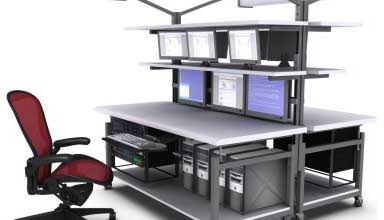Balli Steel, one of the world’s largest privately owned independent commodity traders, reports that China is expanding into the iron ore market and increasing its steel production capacity, against a backdrop of declining worldwide production.
Figures from the World Steel Association demonstrate that global steel production declined by 18.1% year-on-year in August 2009 to 758 million tonnes. In contrast, crude steel production in China increased by 5.4% over the same period. China now accounts for almost 49% of world steel production as well as approximately 50% of global consumption which equates to 1.5 million tonnes per day.
Balli Steel estimates that Chinese steel production already stands at over 400 million tonnes for the first 7 months of this year compared with 560 million tonnes during the whole of 2008 and only 200 million tonnes as recently as 2000. Domestic consumption of steel has also increased sharply in recent years from just 25% of global production 10 years ago to nearly half today. However, increased supply has enabled China to become one of the leading exporters of steel, joining the ranks of the EU and Japan, with exports exceeding 20 million tonnes.
Balli Steel highlights that three factors are currently driving China’s growing dominance in the global steel market. The first is the scale of domestic demand for both industrial and construction steel, which is currently evenly balanced, with the latter a reflection of the property boom in leading cities such as Shanghai, Beijing, Tianjin, Guanzho and Hong Kong. Real estate development grew by 10% in the first half of 2009 and automobile manufacturing grew by 16.4% during the same period resulting in increased demand for steel.
The second factor is that the depreciation of the US Dollar against the Yen and other world currencies is now reversing. In addition, other countries, such as Indonesia, are also seeing their currencies strengthen which is enabling their economies to stabilise adding to the demand for steel products.
The final driver is that the slight upturn in demand, combined with the fact that destocking has occurred, has led to an upward pressure on prices. Steel billet prices have risen from $300 per tonne two months ago to current levels of $450 per tonne.
Nasser Alaghband, Director of Balli Steel commented: “Both consumption and production of steel in China remains strong against a global backdrop of falling supply and continuing uncertainty in demand. China’s dominance of the global steel market is an indicator of the wider strength in the Asian market which has also seen an increase in production in other countries such as India and rising exports in Japan, albeit at lower levels than 2008.”
Via EPR Network
More Industrial press releases





